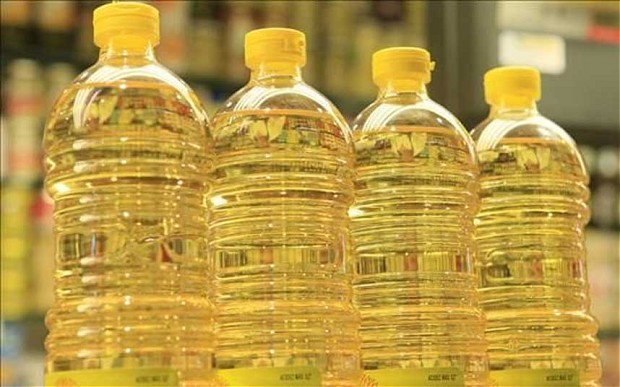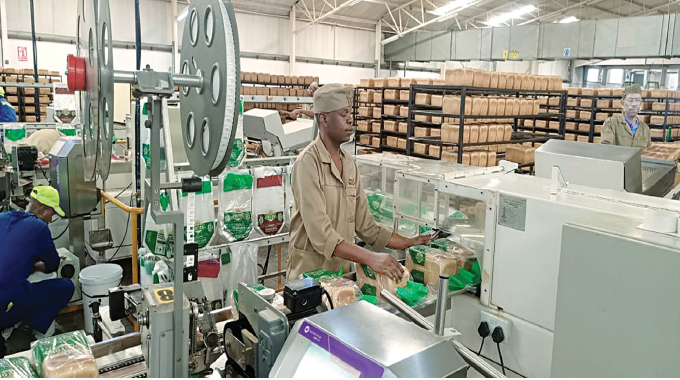Liquidity shortage, cash crisis strains cooking oil sector

THE cooking oil industry is considered one of the success stories in Zimbabwe’s drive towards value addition and import substitution. The sector, which employs about 4 000 people, has in the last two years registered a dramatic rebound in production levels.
This has resulted in lowering of prices, which has helped ward off competition from imports with oil expressers gaining significant grip in terms of market share. However, capacity utilisation in the sector has plunged recently to around 35 percent compared to 60 percent, according to the Confederation of Zimbabwe Industries (CZI).
Industrialists blame shortage of foreign currency saying they are finding it difficult to procure raw materials from foreign suppliers who should be paid in foreign currency. Due to shortage of soya bean, the major raw material, most oil expressers rely on importing crude oil for further processing.
Reporter Lethokuhle Ngwenya (LN) interviewed Mr Busisa Moyo (BM), the chief executive officer of United Refineries Limited and CZI president on the impact of the cash crisis on the cooking oil sector. Below is an extract of the interview.
LN: How has the cash crisis affected the output of major companies in the cooking oil industry?
BM: Obviously, customer demand is reduced because they can’t buy as much as they need to buy and that makes it difficult. That has adversely affected the rate of sale and the volumes, which the industry is selling as well.
LN: Around May last year, locally manufactured cooking oil was reported to be occupying 95 percent local supermarkets shelf space. What is the situation now?
BM: It’s still the same because we still have a bit of smuggled cooking oil, which is taking up that small five percent. Its smuggled, it’s not official.
LN: How much cooking oil was the sector able to produce per month before the cash crisis and how have these figures been affected by the cash crisis?
BM: Maybe we can talk about 20-30 percent in terms of alternates. But that’s not the cash crisis, it’s the liquidity crisis, which is different. Liquidity is our ability to pay for raw materials outside the country. The cash crisis is the inability of a local person to find cash to make purchases. The liquidity crisis is when you want to buy raw materials and the Reserve Bank says we don’t have the forex to pay. We don’t have foreign liquidity and that’s the 20- 30 percent that we were talking about.
LN: Do you foresee any shortages of cooking oil looming in the near future?
BM: No, I don’t think so. Companies are not producing much but there are two things as I said, the liquidity and the cash crisis. On liquidity, companies are not able to produce as much. Let’s say we were at 6 000 but now we are at 4 000. Here also, people do not have as much to buy as when we were producing when things were still OK. So, both have come down and they are sort of merged.
LN: Media have been reporting that local cooking oil companies have outstanding payments on foreign supplies. How much debt does the cooking oil industry owe on foreign supplies?
BM: Maybe close to 10 million, but that’s just about a month’s supply, so we are a month behind.
LN: It has also been reported that foreign suppliers have since imposed credit limits on Zimbabwean companies. How has this affected the sector?
LM: Because we are not able to pay, we keep the ceiling of our credit limits. So, somebody gives you a credit of a million dollars and says that’s how much credit you can take. You take too long to pay, then you hit the ceiling. Once you have drawn products worth a million then you can’t draw anymore until you pay. For us we could go to our bank to say pay for our foreign supply but the bank is saying we don’t have the foreign currency and that’s the 20-30 percent that we are saying has been cut in terms of supply.
LN: How has the cash crisis impacted on orders you receive from local retailers. Are you able to meet their needs?
BM: Yes, we are able to meet their needs more or less. In fact, we are now pushing a lot because they are not taking as much as they need to. Because of the cash crisis, people don’t have money. Especially in November and December before the bond notes came, they didn’t have the cash to buy. They wanted to go and buy but the cash was stuck in the bank so they couldn’t. So from July 2016 round about, orders went 30 percent down.
LN: We know that the cooking oil industry was looking forward to exporting in the near future and also producing its own raw materials. What is your perspective on those plans considering the prevailing situation?
BM: Now that we are short of products, now that we can’t supply the local market enough, we have to put those plans on the back bench. Go easy on those plans. Otherwise we will create more shortages locally.
LN: What are companies doing to overcome the problems associated with the crisis?
BM: There is a Soya Growers’ Association, which has been trying to localise the procurement of oil seeds so that we are able to process from within as we used to in the old days when we were processing soya seed from local seed. So, that’s what we are focusing on. It will take some time before we are self-sufficient in terms of soya but due to command agriculture and other private sector programmes and out grower schemes we think we will be able to localise maybe in three to four years. We are just starting and we are on the road now.
LN: How much assistance are you getting from the Reserve Bank to stabilise the processing of foreign payments in order to expedite critical raw materials and is this enough?
BM: We are getting a lot of assistance but the RBZ itself is short of foreign currency. The country is short because we don’t get enough so they are giving us as much as they can but it’s a challenge. As I said, we are a month behind as a sector. They are trying to allocate more to the cooking oil industry by denying other sectors. So, you have got 100 but there is 200 that is required so you have to ration. So, there is rationing and allocation and we are being prioritised as an industry.
LN: What is CZI doing to assist the sector?
BM: CZI is supporting by providing industry meetings with the Government to highlight challenges, how far behind, the impact and what we need to do because if we have to import the cooking oil it will be more detrimental for jobs, for the economy and for costs. It costs less to bring in the raw materials than to bring in the finished product.
LN: What is the Government doing to assist?
BM: Government through Ministry of Finance and that of Industry has been supporting us in prioritising the sector as well to say that these companies under SI 64 and other support measures need to be prioritised. Fortunately, the tobacco season will see an improvement and the maize harvest will reduce the pressure. You have to realise that the reason why we are also having shortages of payments is because there is one thing that was above cooking oil in terms of being prioritised and that is maize. They were taking a big chunk of what could come to us but now that they are harvesting and the harvest is good, the maize pressure will fall away in terms of foreign currency and we will sort of move up above the ranks. I think there is still fuel and spare parts that are above us.
LN: What does the future hold for the sector?
BM: The future is bright with the support and the recognition because remember that the sector after maize again in agriculture is the next biggest in terms of size and jobs. We need the sector to be alive, we need the sector to be vibrant so that when farmers harvest their soya, there is a market for the soya beans and that would employ more people.
Zimbabwe is a producer of cooking oil brands such as Pure Drop, Golden Glow, Olivine, Zimgold, Sun-Seed, Better Buy, Sunfoil, Roil and Sunshine. Big players in the industry include, Pure Oil, Surface Wilmar, Olivine, Willowton and United Refineries.











Comments